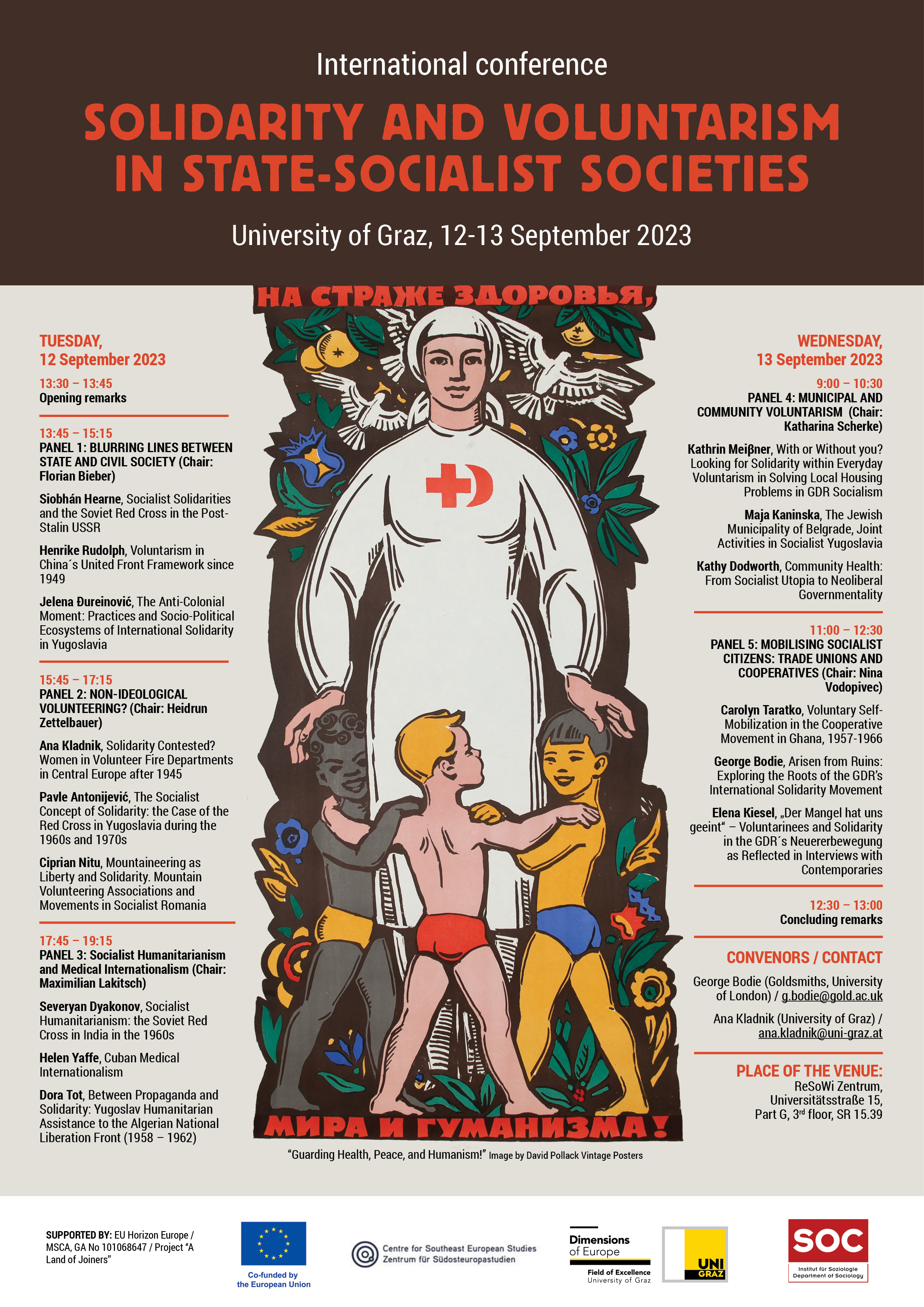Recent advances in the field have illuminated the extent and depth to which practices of solidarity defined everyday life in state-socialist societies. Perhaps most clearly, this has emerged in the recent growth of literature which explores practices of socialist internationalism, which carried with them a conception of international solidarity that was distinctly embedded in everyday life. But as the literature on state-socialism continues to develop beyond theories of totalitarianism and simplistic accounts of societies dominated or entirely subsumed by the state, solidarity—whether directed within or beyond national borders—is increasingly becoming a worthwhile object of study as a generalised practice or concept.
A key (and still to this day largely unexplored) element of this focus on solidarity is voluntarism and voluntary organisations. Such organisations have often been dismissed as fronts, existing solely to mobilise populations or serving as disseminators of propaganda. In many cases, these assertions carry some weight. Yet the story of how the concept of solidarity was contested, and how socialist citizens found meaning in it must also involve serious exploration of practices of voluntarism.
The existence of voluntary organisations and voluntarism remind us that the relationship between state and society in state-socialism cannot be reduced to a simplistic oppositional binary, but was rather one that was fluid, multidimensional and often ambivalent. Socialist citizens practiced solidarity via voluntarist organisations through a mixture of coercion (and much more rarely, compulsion), genuine enthusiasm and many other forms of motivation in-between. Exploring the multifaceted nature of these motivations, this conference will make an important contribution to our understanding of the social history of state socialism. It will explore the ways and means through which the practice of solidarity manifested through voluntarism and voluntary institutions.
